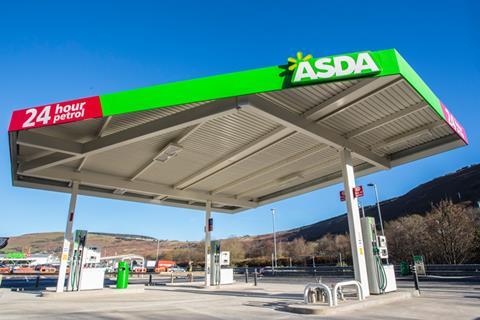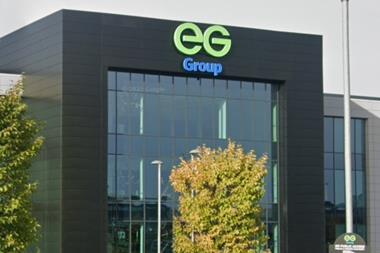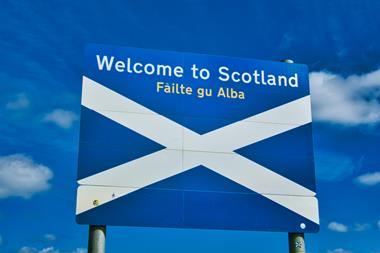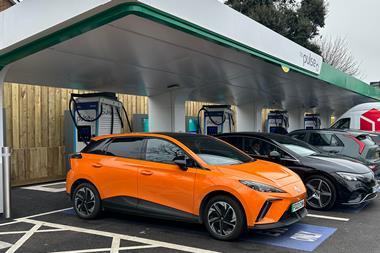Supermarkets have been playing fast and loose with fuel pricing for years but the folly of their actions has finally come back to haunt them. John Wood reports on what led up to this week’s damning CMA report into the road fuels market

Using a product as a loss leader to draw in customers rarely ends happily – it will cause severe disruption if you ever try to return to more natural pricing – and the supermarkets’ use of the practice has really thrown a spanner in the works of the entire road fuels market.
Cast your mind back to the bad old days before the pandemic when the supermarkets were always trumpeting their latest cuts in the price of petrol, and thousands of independents hated them for it. The supermarkets claimed their financial muscle meant their costs were lower than the rest of the market – which was true – and they were simply passing on the benefit to their customers. But everyone knew they were also taking a minimal margin in an attempt to draw shoppers into their stores.
It worked and customers flocked to supermarkets winning them a disproportionate share of the fuel market, while thousands of independents were driven out of business by the unfair competition. In 2019 Forecourt Trader reported that supermarkets had just 18.9% of the outlets in the UK but 44.8% of the volume, and the average volume per supermarket site was 10.243mlpa compared with the market average of 4.318mlpa. This gave the supermarkets dominance over pricing in the market, and pre-eminent among them was Asda. It earned a reputation for the lowest cost fuel, and when it announced a price cut, proudly pointing out the same price applied at all its sites, the other supermarkets would all publicise similar cuts without pointing out that prices at their stores differed to take advantage of regional variations. Every so often rabble rousers would point out the price difference between supermarkets and other fuel retailers and claim profiteering was going on, but multiple inquiries by the competition authorities gave the fuel market a clean bill of health.
But since the turn of the decade there has been a massive upheaval in the supermarket sector. The discounters Aldi and Lidl have taken a significant chunk out of the supermarkets’ share of the grocery market, forcing down margins in this sector, and two of the big four – Asda and Morrisons – have been saddled with huge debts after being taken over. In 2021 EG Group’s owners – Mohsin and Zuber Issa and TDR Capital – completed the £6.8bn purchase of Asda, while MFG’s owner, Clayton, Dubilier & Rice Holdings, bid £7.1bn to win an auction for Morrisons. With growing pressure on supermarkets’ profitability, and both new owners having a detailed insight into petrol prices in the UK’s independent retail sector, the opportunity to increase fuel margins nearer to more normal levels seen in the market must have seemed a no-brainer.
Evidence gathered by the Competition and Markets Authority (CMA), and published in its report on the road fuels market, lays out in detail how the boards of both companies discussed raising margins. It stated that Morrisons’ and Asda’s fuel margins for 2023 had doubled and tripled respectively compared with 2019. This still left them as the most competitive supermarkets on pricing, but Sainsbury’s and Tesco did not respond in the way the CMA would expect in a competitive market, by competing for market share, and instead raised their prices in line with these changes. Taken together, the CMA said this indicates that competition has weakened and changes were needed.
The great irony, however, is that the supermarkets might have got way with upping their margins, without an inquiry, if it had not been for some appalling bad luck. The first blow, which no one outside the Kremlin could have foreseen, came when Russia invaded Ukraine. Fuel prices rocketed to record levels and came under intense scrutiny. Then, in a futile bid to reduce the burden on motorists, the then chancellor Rishi Sunak introduced a 5ppl cut in fuel duty. With consummate timing he did this on a day when wholesale prices ratcheted up, and although retailers passed on the cut, prices didn’t go down and there were accusations that retailers had pocketed it. Another piece of bad luck was a foundering government desperate to deflect attention away from its problems, so then transport secretary Grant Shapps was only too happy to go on the record blaming “greedy petrol stations”. Business secretary Kwasi Kwarteng weighed in claiming retailers had “pocketed the tax cut” and in July he ordered the CMA to carry out an urgent review of the road fuel market. When the CMA reported it cleared retailers over passing on the cut in duty, but found “causes for concern” and launched a detailed study of the fuel market.
The outcome of the inquiry was always going to be tough for the supermarkets, but the impact was amplified by politicians desperate to avoid the blame for the cost-of-living crisis, who now found a scapegoat.
The government had clearly been briefed by the CMA and choreographed its response. Within hours of the publication of the CMA’s report Grant Shapps, now energy security secretary, said: “Some fuel retailers have been using motorists as cash cows – they jacked up their prices when fuel costs rocketed but failed to pass on savings now costs have fallen. It cannot be right that at a time when families are struggling with rising living costs, retailers are prioritising their bottom line, putting upwards pressure on inflation and pocketing hundreds of millions of pounds at the expense of hardworking people. Today I’m putting into action the CMA’s recommendations and standing by consumers – we’ll shine a light on rip-off retailers to drive down prices and make sure they’re held to account by putting into law new powers to increase transparency.
Jeremy Hunt, Chancellor of the Exchequer, added: “It isn’t fair that businesses are refusing to pass on lower prices to protect their profits while working people struggle with balancing their budgets. Consumers need to be treated fairly, and so we’re empowering drivers to find the best prices possible for their fuel by taking swift steps following the CMA’s recommendation.” And of course, while the CMA’s report was principally about the supermarkets’ margins the lazy politicians blamed fuel retailers generally.
This sorry sequence of events stems from supermarkets selling their fuel at artificially low prices. The competition authorities were perfectly happy when they were skewing the market and driving thousands of independent fuel retailers out of business with their unfair competition. But when their prices became more reflective of the real market, the CMA cried foul and pointed to the artificial situation that used to exist as its evidence. The responsibility for this shambles lies squarely with the supermarkets, although without the opportunism of politicians it still might never have blown up the way it has, but it is the whole sector that is now taking the flak from angry customers. Hard working independent retailers have been left to clean up the mess the supermarkets caused, and have the expectation of more expense and red tape in their business to implement the new transparency regulations.
































